The nurses say they are their to help you. But when they go on strike and it's the only mental health hos[ital I can go to. To be treated like shit and called nasty names on the way on. They don't care about you. They only care about their pockets. I hope they all rot in HEL ...
About Butler Hospital
A lot of Butler Hospital’s rehab patients start in their inpatient program. This program is for people who need intensive treatment and are usually in the earliest stage of their recovery journey. You can detox at this hospital as well, so they can help with everything you need to get started in recovery.
But if you don’t need inpatient treatment, there are plenty of options too. You can get outpatient care here, with programs at different levels based on how much treatment you need.
The programs at Butler Hospital are well rounded and diverse. You’ll have individual therapy and group therapy, build a support system with peer support groups, and learn coping skills that will help you lower your risk for a future relapse. If you have opioid addiction, they’ll give you medications to help with withdrawal and cravings.
The most unique feature of Butler Health might be their transitional outpatient program. This cool program helps people who are getting discharged from an inpatient program so they can transition into sober life outside their facility. Along with ongoing therapy and treatment, you’ll get case management. This means they’ll help you with different resources and steps to get set up for an independent and sober life.
Facility Overview
Latest Reviews
Rehab Score
Gallery
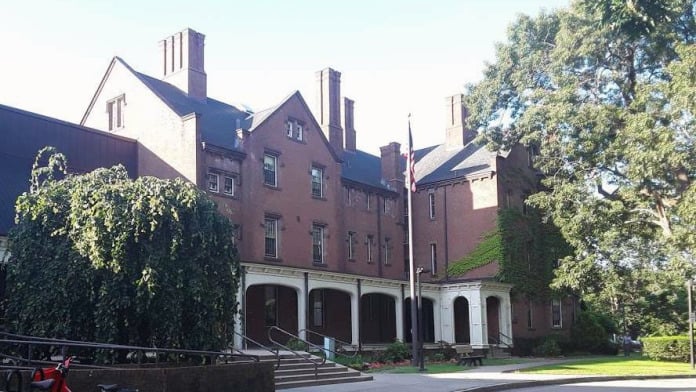
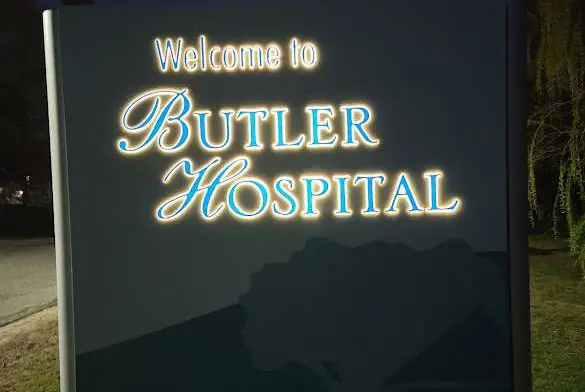

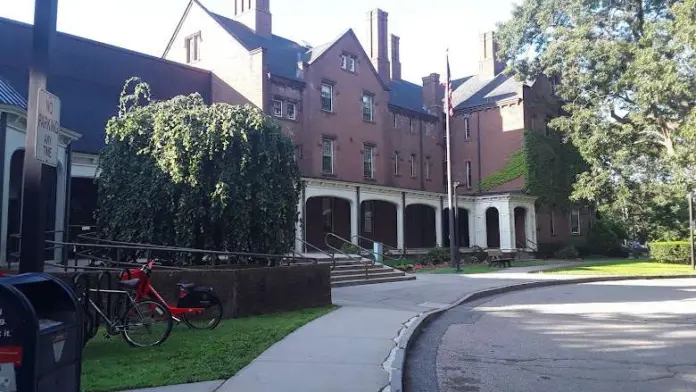
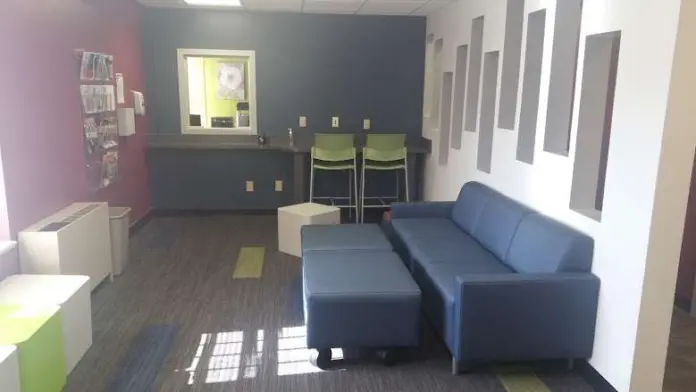
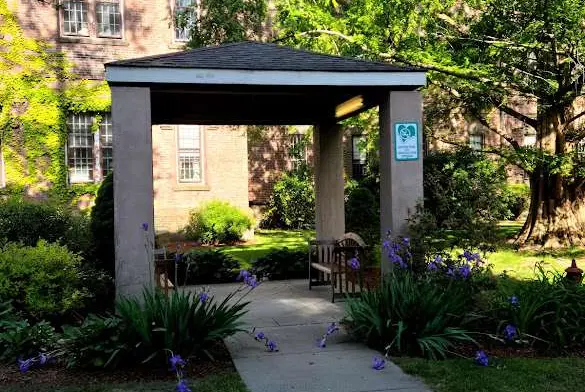






Accepted Insurance
Other Forms of Payment
Medicaid is a state based program that helps lower-income individuals and families pay for healthcare. Medicaid covers addiction treatment so those enrolled can use their coverage to pay for rehab. When a program accepts Medicaid the client often pays very little or nothing out of their own pocket.
Private insurance refers to any kind of healthcare coverage that isn't from the state or federal government. This includes individual and family plans offered by an employer or purchased from the Insurance Marketplace. Every plan will have different requirements and out of pocket costs so be sure to get the full details before you start treatment.
Self-pay involves paying for treatment out of your own pocket. You can use savings or credit, get a personal loan, or receive help from family and friends to fund your treatment. If you don't have insurance or your insurance plan doesn't cover a specific program, self-pay can help ensure you still get the care you need.
Financial aid can take many forms. Centers may have grants or scholarships available to clients who meet eligibility requirements. Programs that receive SAMHSA grants may have financial aid available for those who need treatment as well. Grants and scholarships can help you pai for treatment without having to repay.
Medicare is a federal program that provides health insurance for those 65 and older. It also serves people under 65 with chronic and disabling health challenges. To use Medicare for addiction treatment you need to find a program that accepts Medicare and is in network with your plan. Out of pocket costs and preauthorization requirements vary, so always check with your provider.
Military members, veterans, and eligible dependents have access to specific insurance programs that help them get the care they need. TRICARE and VA insurance can help you access low cost or no cost addiction and mental health treatment. Programs that accept military insurance often have targeted treatment focused on the unique challenges military members, veterans, and their families face.
Addiction Treatments
Levels of Care
Outpatient Programs (OP) are for those seeking mental rehab or drug rehab, but who also stay at home every night. The main difference between outpatient treatment (OP) and intensive outpatient treatment (IOP) lies in the amount of hours the patient spends at the facility. Most of the time an outpatient program is designed for someone who has completed an inpatient stay and is looking to continue their growth in recovery. Outpatient is not meant to be the starting point, it is commonly referred to as aftercare.
Men and women who require immediate stabilization, evaluation and treatment are cared for in one of four treatment units. Treatment is short-term and intensive, with average stay of eight days. Two inpatient units offer acute care and are staffed by clinicians and nurses who are specially trained to care for adults affected by anxiety, bipolar disorder, depression, post traumatic stress disorder (PTSD), psychosis and other sever psychiatric conditions. Also there is an Inpatient Alcohol and Drug Unit offers specialized care to people who are addicted to drugs and/or alcohol and need detoxification as well as psychiatric intervention.
Drug and alcohol addiction often takes a heavy toll on one's body. Over time, a physical dependence can develop, meaning the body physiologically needs the substance to function. Detox is the process of removing drugs and/or alcohol from the body, a process that can be lethal if mismanaged. Medical detox is done by licensed medical professionals who monitor vital signs and keep you safe, healthy, and as comfortable as possible as you go through detox and withdrawal.
A partial hospitalization program (PHP) offers intensive rehab without the need for 24-hour care. Whether it's an alternative to inpatient hospitalization or a step-down option post-hospital or residential care, PHP treatment often includes relapse prevention strategies, medication management, and other behavioral therapy interventions. PHP treatment typically requires daily sessions for 4-8 hours, 5 days a week. Depending on your progress, the length of PHP treatment can vary, averaging 90 days. The cost of PHP treatment varies but is often fully or partially covered by providers.
12-step programs are addiction recovery models based on Alcoholics Anonymous (AA). A number of substance abuse programs (including some drug and alcohol rehab centers) use the 12 steps as a basis for treatment. Beginning steps involve admitting powerlessness over the addiction and creating a spiritual basis for recovery. Middle steps including making direct amends to those who've been hurt by the addiction, and the final step is to assist others in addiction recovery in the same way. 12-Step offshoots including Narcotics Anonymous (NA), Cocaine Anonymous (CA), Dual Recovery Anonymous (DRA), Sex and Love Addicts Anonymous (SLAA) and Gamblers Anonymous (GA).
Completing a drug or alcohol rehab program shouldn't spell the end of substance abuse treatment. Aftercare involves making a sustainable plan for recovery, including ongoing support. This can include sober living arrangements like halfway houses, career counseling, and setting a patient up with community programs like Alcoholics Anonymous (AA) or Narcotics Anonymous (NA).
Treatments
The goal of treatment for alcoholism is abstinence. Those with poor social support, poor motivation, or psychiatric disorders tend to relapse within a few years of treatment. For these people, success is measured by longer periods of abstinence, reduced use of alcohol, better health, and improved social functioning. Recovery and Maintenance are usually based on 12 step programs and AA meetings.
During drug rehab in Rhode Island, you'll participate in a variety of therapeutic interventions designed to help you break free from addiction. Common methods include cognitive behavioral therapy, music and art therapy, 12-step support, and nutrition/exercise.
Many of those suffering from addiction also suffer from mental or emotional illnesses like schizophrenia, bipolar disorder, depression, or anxiety disorders. Rehab and other substance abuse facilities treating those with a dual diagnosis or co-occurring disorder administer psychiatric treatment to address the person's mental health issue in addition to drug and alcohol rehabilitation.
A combined mental health and substance abuse rehab has the staff and resources available to handle individuals with both mental health and substance abuse issues. It can be challenging to determine where a specific symptom stems from (a mental health issue or an issue related to substance abuse), so mental health and substance abuse professionals are helpful in detangling symptoms and keeping treatment on track.
Programs
Adult rehab programs include therapies tailored to each client's specific needs, goals, and recovery progress. They are tailored to the specific challenges adult clients may face, including family and work pressures and commitments. From inpatient and residential treatment to various levels of outpatient services, there are many options available. Some facilities also help adults work through co-occurring conditions, like anxiety, that can accompany addiction.
Young adulthood can be an exciting, yet difficult, time of transition. Individuals in their late teens to mid-20s face unique stressors related to school, jobs, families, and social circles, which can lead to a rise in substance use. Rehab centers with dedicated young adult programs will include activities and amenities that cater to this age group, with an emphasis on specialized counseling, peer socialization, and ongoing aftercare.
Clinical Services
Cognitive Behavioral Therapy (CBT) is a therapy modality that focuses on the relationship between one's thoughts, feelings, and behaviors. It is used to establish and allow for healthy responses to thoughts and feelings (instead of unhealthy responses, like using drugs or alcohol). The Cognitive Behavioral Therapy Program helps men and women develop the skills to effectively manage depression, anxiety, substance abuse and many other psychiatric disorders.
The Women's Partial Hospital Program at Butler Hospital helps women manage depression, anxiety, substance abuse, problematic behaviors and other psychiatric disorders. In the program, she will learn dialectical behavior therapy (DBT), which helps manage suicidal thoughts, self-injurious behavior, and feelings that are overwhelming her. With a focus on practical problem-solving, the Women's Dialectical Behavior Therapy (DBT) Program teaches the skills needed to cope and effectively manage challenging relationships, situations, thoughts, and feelings. In an effort to change a very painful state of mind as a result of these challenges, she may be engaging in a variety of behaviors, such as self-injury, binge eating, reckless driving, compulsive cleaning, etc.
According to the American Psychiatric Association, ECT is considered the most effective treatment for major depression for people who have not found relief of their symptoms from medications or other forms of therapy. ECT is most commonly recommended for people who have not found relief of their symptoms from medications or other forms of therapy used to treat major depression. Treatments are provided on both an inpatient and outpatient basis. For outpatient treatment, a family member, friend or health care worker must be available to help with transportation following the treatments.
Experiential therapy is a form of therapy in which clients are encouraged to surface and work through subconscious issues by engaging in real-time experiences. Experiential therapy departs from traditional talk therapy by involving the body, and having clients engage in activities, movements, and physical and emotional expression. This can involve role-play or using props (which can include other people). Experiential therapy can help people process trauma, memories, and emotion quickly, deeply, and in a lasting fashion, leading to substantial and impactful healing.
Family’s involvement and others who play a significant role in the patient's life, is encouraged. They can be very important to the success of the treatment and recovery. However, no contact with the family or others will be made without patient's signed consent.
Group therapy is any therapeutic work that happens in a group (not one-on-one). There are a number of different group therapy modalities, including support groups, experiential therapy, psycho-education, and more. Group therapy involves treatment as well as processing interaction between group members.
Individual Therapy includes one-on-one sessions between you and your therapist that incorporate the therapeutic approach that works best for each individual person. That may include any combination of therapy approaches such as psycho dynamic therapy, cognitive behavioral therapy, women's dialectical behavioral therapy and supportive and motivational therapy.
Amenities
-
Private Setting
Staff & Accreditations
Staff

Mary Marran, Ms, OT, MBA
President & COO

Diane Ferreira, MHA, RN, CCM
Senior VP & CNO

Stephen E. Burke, CPA,MBA
VP of Finance

Ghulam Mustafa Surti, MD
Senior VP & Chief Medical Officer

Scott Vansteeden, MBA, RN
VP of Operations

Kevin Baill, MD
Associate Chief Medical Officer & Chief of Addiction Services
Accreditations

The Joint Commission, formerly known as JCAHO, is a nonprofit organization that accredits rehab organizations and programs. Founded in 1951, the Joint Commision's mission is to improve the quality of patient care and demonstrating the quality of patient care.
Joint Commission Accreditation: Yes
Contact Information
345 Blackstone Boulevard
Providence, RI 02906



